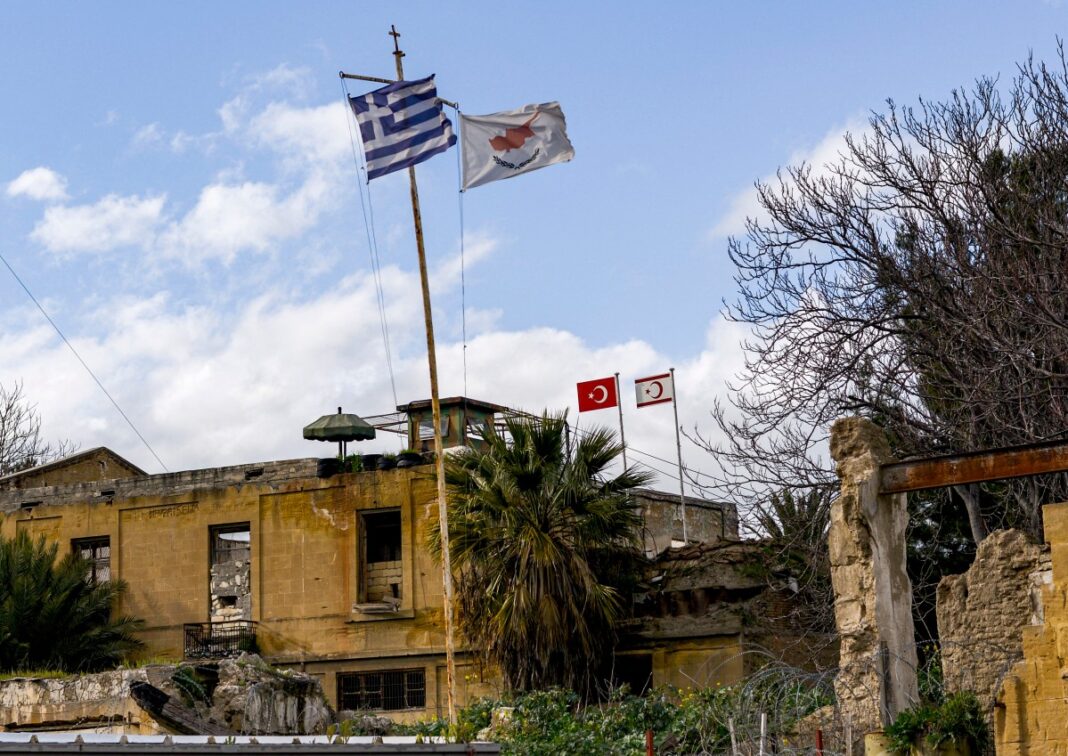Cyprus has received the first components of an Israeli-made air defense system similar to Iron Dome, Sigma television reported Tuesday, citing reliable sources, in a move likely to counter potential threats from Turkish drones stationed in northern Cyprus.
Cyprus has been mired in a protracted dispute between Greek Cypriots and Turkish Cypriots despite multiple diplomatic efforts aimed at reaching a comprehensive settlement. The conflict intensified in 1974, when a Greek Cypriot coup seeking to unify the island with Greece prompted Turkey’s military intervention, under its role as a guarantor power to protect Turkish Cypriots. The Turkish Republic of Northern Cyprus (KKTC) was declared in 1983 but remains recognized only by Turkey.
The system is being prepared for operational use by the Cyprus National Guard, with additional components scheduled to arrive in the coming months, according to the report.
The arrival marks a significant shift in Cyprus’s defense capabilities as the country moves to replace its aging Russian-made TOR and BUK air defense systems, which have become increasingly difficult to maintain due to sanctions against Russia. Despite remaining operational, these existing systems face mounting challenges in procuring spare parts.
Iron Dome is an innovative air defense system that protects Israel from missile attacks. The Israeli Rafael company began full-scale development in late 2007, and the system became operational in 2011.
Iron Dome is a mobile, all-weather air defense system capable of detecting and intercepting incoming missiles, rockets and projectiles with ranges between 4 and 70 kilometers.
Each system battery consists of three components: a radar (ELM -2084 3D AESA) to detect and track approaching threats; a battle management and fire control center; and three missile launch units with 20 Tamir interceptors each. The unit can track up to 1,100 air surveillance targets. Iron Dome does not target all missiles fired from the source; it assesses the threat and engages only those that pose a threat.
Iron Dome could significantly strengthen the inadequate Cypriot air defenses, which consist of the Russian 9K330 Tor and 9K37 Buk air defense missile systems and the French Mistral missiles.
While Iron Dome is known for its combat use in Israel against tiny rockets from Gaza, it is also an effective tool against drones. Cyprus has chosen Iron Dome to defend against potential Turkish threats from the unmanned combat aerial vehicle (UCAV) TB -2.
As of December 2019 Turkey had deployed the TB -2 in northern Cyprus. In Syria, Libya, Nagorno-Karabakh and Ukraine, the TB -2s have repeatedly demonstrated their ability to destroy Russian-made air defense systems.
Bayraktar TB-2 was developed by prominent Turkish defense contractor Baykar which gained significant recognition for the effectiveness of its drones in countering Russian forces in Ukraine, particularly in the initial weeks of the Russian invasion, where they successfully countered Russian armor and anti-aircraft systems. Baykar’s chairman, Selçuk Bayraktar, is the son-in-law of Turkish President Recep Tayyip Erdoğan.
The deployment of an Israeli-made air defense system in Cyprus marks the culmination of a strategic defense partnership that began at a trilateral summit between Israel, Greece and Cyprus on November 12, 2020, where the three nations agreed to expand defense industry cooperation.
Initial discussions for the system’s procurement started in October 2021, when then-president Nikos Anastasiadis’s government entered talks with Israel to acquire a version of the Iron Dome system tailored to the National Guard’s specific operational requirements.
The procurement process accelerated after Cyprus’s National Guard commander, Lt. Gen. Dimokritos Zervakis, conducted an inspection of the system in Israel in March 2022.
The deal gained momentum in August 2022, when the Cypriot Defense Ministry approved the purchase, just two days after Turkey and Israel announced the normalization of their diplomatic relations. According to the Greek Kathimerini daily, the agreement was signed by Israeli and Cypriot officials, though neither side publicly confirmed the details at the time.
The deployment coincides with Cyprus’s efforts to deepen defense ties with both Israel and the United States, highlighted by President Nikos Christodoulides’s recent White House visit — the first such invitation extended to a Cypriot leader since 1996.



